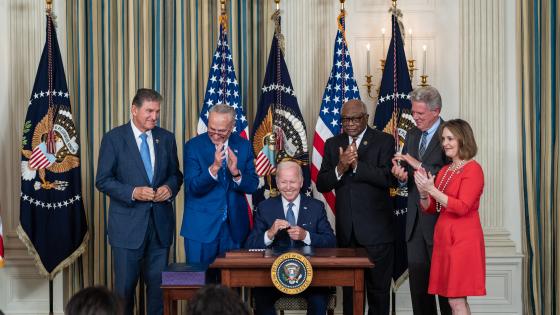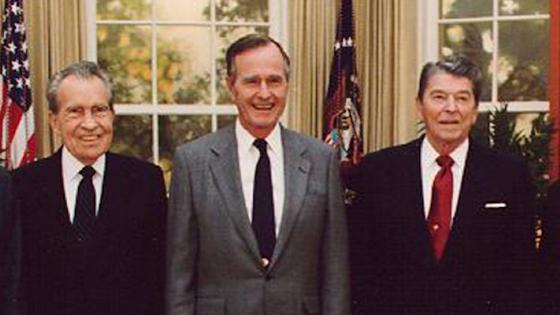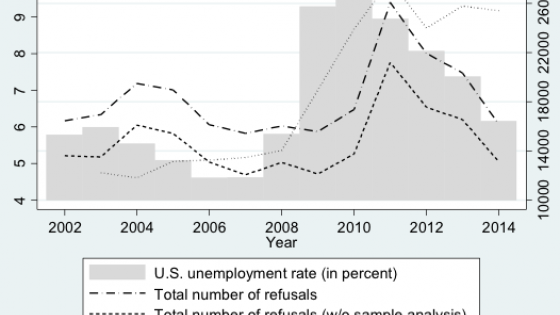In Europe and elsewhere, the adoption by the US Congress of the Inflation Reduction Act (IRA)
was a thunderclap because of the protectionist nature of certain provisions allowing subsidies for vehicle electrification which are contrary to international trade law (European Parliament 2023, Lester 2023). After the Trump presidency and its tariff aberrations, the US under the Biden–Harris administration was expected to respect its multilateral commitments within the WTO.
But this naive view ignored the fact that the shift began about 15 years ago, and that it is the product of structural forces whose actions have gradually modified the political balance in favour of trade openness that had prevailed in Washington, not without some lurching, since the 1950s.
One can identify four of these forces, all of them specific to the US. Each one has an inflection point: 2008, 2011, 2016, and 2018.
The first force is institutional, namely, the combination of the primacy of the legislature over the executive in the conduct of foreign trade policy with the weight of money in the electoral system and the overrepresentation of farm states in the Senate. Hence the overpowering influence of pressure groups such as the cotton, sugar, and grain growers. In 2008, the American negotiator blocked the adoption of a reduction in agricultural subsidies that would probably have paved the way for the conclusion of the Doha Round launched in 2001 (Blustein 2009).
The second force, of the same order, and also structural, is the refusal by the US, and especially Congress, of any international discipline that might not work to their advantage. Some observers thought that the creation of the WTO in 1994, with its compulsory dispute settlement mechanism, had opened a breach in this tradition. But this was without counting on the rising resentment of American lawyers who had lost cases in Geneva and who, disgruntled, obtained from the Obama administration the non-renewal in 2011 of the American judge on the WTO court of appeal, an exceptional event. This second date went unnoticed, except by a few aficionados; but it was the prelude to the Trump administration's attempt, this time in large format, to sabotage the WTO's jurisdictional system.
The third force is the weakness of the US social security system and its inability to cushion the painful impact on some workers of technological change and open trade. This American ideological constant of a preference for more efficient and therefore more brutal capitalism has logically produced a rise in protectionist resentment in some regions harder hit than others, slowly but surely eroding both the Democratic minority and the pro-openness Republican majority that had long provided the narrow majority needed in Congress to ratify trade agreements. Hence the non-ratification of the major trans-Pacific agreement signed in 2016: this third date preceded the American withdrawal by Trump in 2017. This is also reflected in the current narrative of a trade policy “for the middle class,” a way of softening and somehow masking this hard-line version of capitalism.
The last force is, of course, the Sino-American rivalry (Nye 2021), which has now become structural and predominant in the American vision of the world, and whose acceleration dates from Xi Jinping's total takeover of Chinese power in 2018 when he obtained the reform of the constitutional provisions that limited the length of his reign. From a Washington point of view, the WTO is useless against China, which is why it is being deserted. The trade distortions caused by massive Chinese subsidies are rightly criticised, but neither the US nor other trading powers such as the EU or Japan have ever made a serious attempt to remedy the congenital weakness of the WTO's anti-subsidy disciplines. It is easy to see why with the aforementioned IRA. And today I’m afraid I probably lacked foresight and adopted an overly defensive attitude when, as the EU Commissioner for Trade from 1999 to 2004, I gave way to French and other Europeans concerns that the EU could suffer from a tightening of the WTO net.
If this analysis is correct, it should be clear that the American protectionist turn has been taken for a long time and will last long, as one doesn’t see the main forces that provoked it changing direction, starting with the desire to push China back.
This raises formidable questions for us Europeans (e.g. Kleinmann et al. 2023), and probably even more so for emerging and developing countries, even though unfortunately there is little evidence of this today.
When the world's leading economic and therefore political power, also benefiting from the international primacy of the dollar, exempts itself from a multilateral trade system that is certainly imperfect, but based on rules to give everyone a chance, and leaves room only for force, there are only two equally problematic options left. The first is to do just as the US, but without the dollar, by further hardening globalised capitalism. But this is not, fortunately from my point of view, the European tradition. The second option is to rebuild with several countries a North–South coalition promoting open trade while respecting various collective preferences, the most common of which is now environmental protection. Such a coalition would start from what already exists, but without the Americans, hoping to create a disadvantage for them that would make them change their position. This is the strategy that I would prefer.
References
Blustein, P (2009), Misadventures of the Most Favoured Nation: Clashing Egos, Inflated Ambitions, and the Great Shambles of the World Trade System, Public Affairs.
European Parliament (2023), “EU-US climate and energy relations in light of the Inflation Reduction Act”, Briefing.
Kleimann, D, N Poitiers, A Sapir, S Tagliapietra, N Véron, R Veugelers and J Zettelmeyer (2023), “How Europe should answer the US Inflation Reduction Act”, Bruegel Policy Contribution No. 04/23.
Lester, Simon (2023), “What Is the Economic Purpose of the GATT/WTO? Free Trade/Anti-Protectionism vs. Market Access”, International Economic Law and Policy Blog, 22 March.
Nye, J S (2021), “What Really Matters in the Sino-American Competition?”, Project Syndicate, 6 December.
The White House (2023), Building a Clean Energy Economy: A Guidebook to the Inflation Reduction Act’s Investments in Clean Energy and Climate Action.



